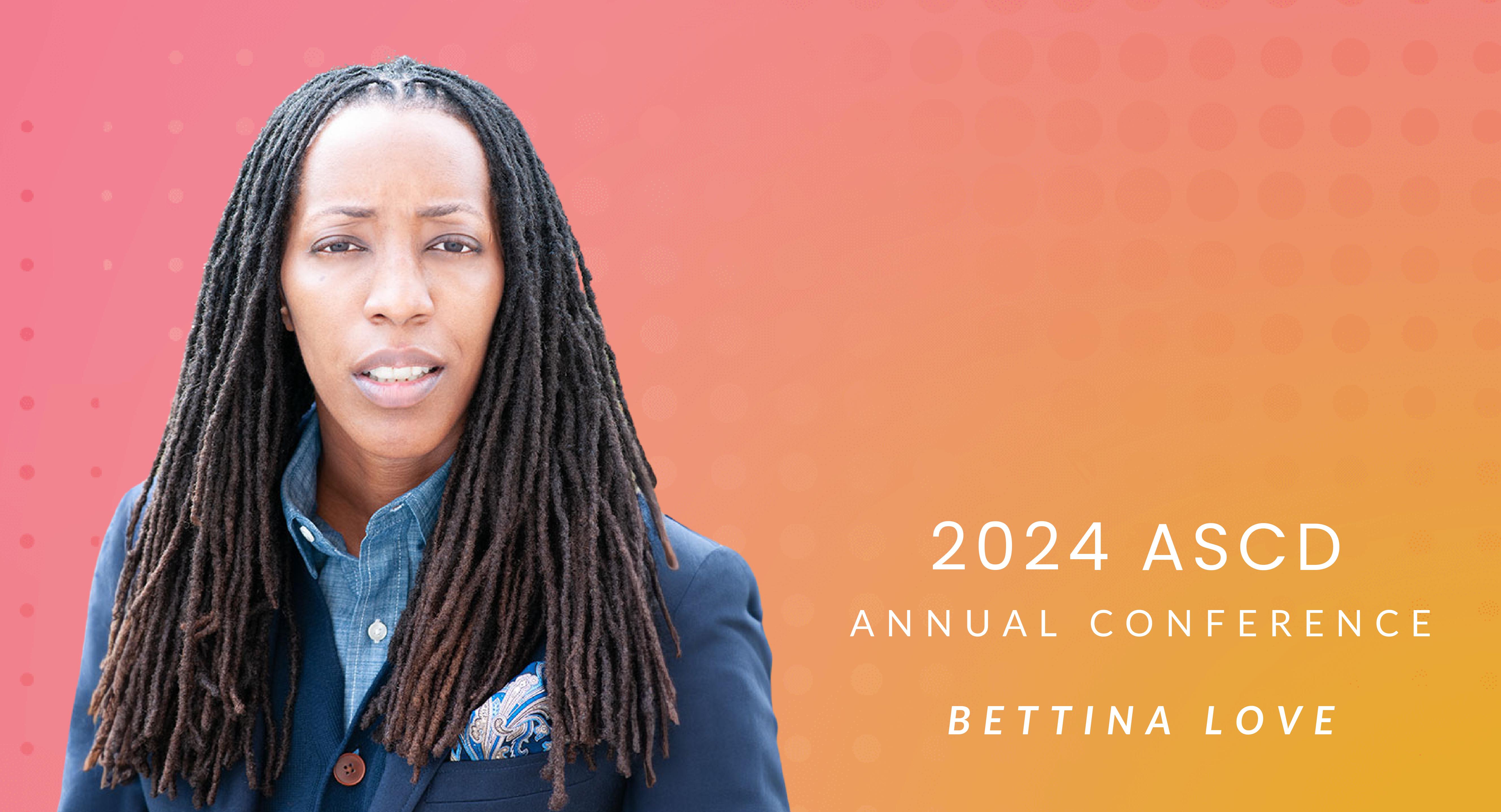Renowned for her advocacy work in abolitionist teaching and social justice in education, Bettina Love spoke with ASCD about what words like education “reform,” “reparations,” and “antiracism” really mean in today’s education landscape—and how educators can take meaningful actions toward equity in schools.
Love holds the William F. Russell Professorship at Teachers College, Columbia University, and is the author of Punished for Dreaming: How School Reform Harms Black Children and How We Heal (St. Martin's Press, 2023) and We Want to Do More Than Survive: Abolitionist Teaching and the Pursuit of Educational Freedom (Beacon Press, 2019).
Through her scholarship and activism, Love challenges systemic racism in public education and promotes communal, civically engaged schools that center the humanity of Black and Brown children. Love will be the opening keynote speaker at the 2024 ASCD Annual Conference on Saturday, March 23, where she will address issues of equity, inclusivity, and innovative teaching practices in schools today.
You've written about influential teachers you had as a young person. Can you tell us about one teacher who inspired you early on?
My first Black male teacher was Mr. Clayton. He was an impressive figure, tall, slim, and remarkably knowledgeable. I was deeply curious about how he seemed to possess such vast knowledge. His presence inspired awe in me, and I viewed him as a role model. In his class, I felt genuinely seen, supported, and cared for; it was evident that he had a genuine love for his students and their success.
In your abolitionist teaching pedagogical framework, you talk about the importance of restoring and affirming Black and Brown students' humanity. What can administrators do to center students' humanity and create real community in schools?
Administrators must ensure that school policies, curricula, and practices reflect students' diverse backgrounds and experiences while building supportive relationships with students and actively involving students in decision-making processes within the school community. Lastly, lead by example by demonstrating empathy, respect, and kindness in all interactions with students, staff, and families.
Can you unpack what "reform" means, as you describe it in Punished for Dreaming? How does “reform” cause harm to Black and Brown students and educators?
"Reform" in education can cause harm to Black and Brown students and educators with punitive high-stakes testing, zero-tolerance policies, charter schools, privatization initiatives, teacher evaluation, and accountability systems that de-professionalize teaching.
Following up on that, you suggest educational reparations as a way to start healing from that harm. What might repair look like in schools?
Repair involves addressing systemic inequities in education, which can include measures such as ensuring an overrepresentation of teachers of color, establishing a higher starting salary for all teachers, providing schools with ample resources, implementing practices that eliminate suspensions, and actively striving to meet the needs of all learners. These actions aim to create more equitable learning environments where every student can access quality education and support systems regardless of their background or circumstances.
What's one equity-related buzzword you wish people would stop using and why?
“Antiracism” encompasses more than just acknowledging the pain and trauma experienced by Black people; it also involves celebrating their joy, resilience, and acts of resistance against oppression. It recognizes that Black individuals and communities have rich histories, cultures, and traditions that extend beyond suffering, and it emphasizes the importance of uplifting and amplifying these aspects as integral parts of the fight against racism. By highlighting the multifaceted experiences of Black people, antiracism acknowledges their humanity and dignity while challenging oppressive structures and ideologies.
When you speak at ASCD, what's one key message you hope educators take away from your talk?
Black excellence sets a high standard that inspires and uplifts everyone.





